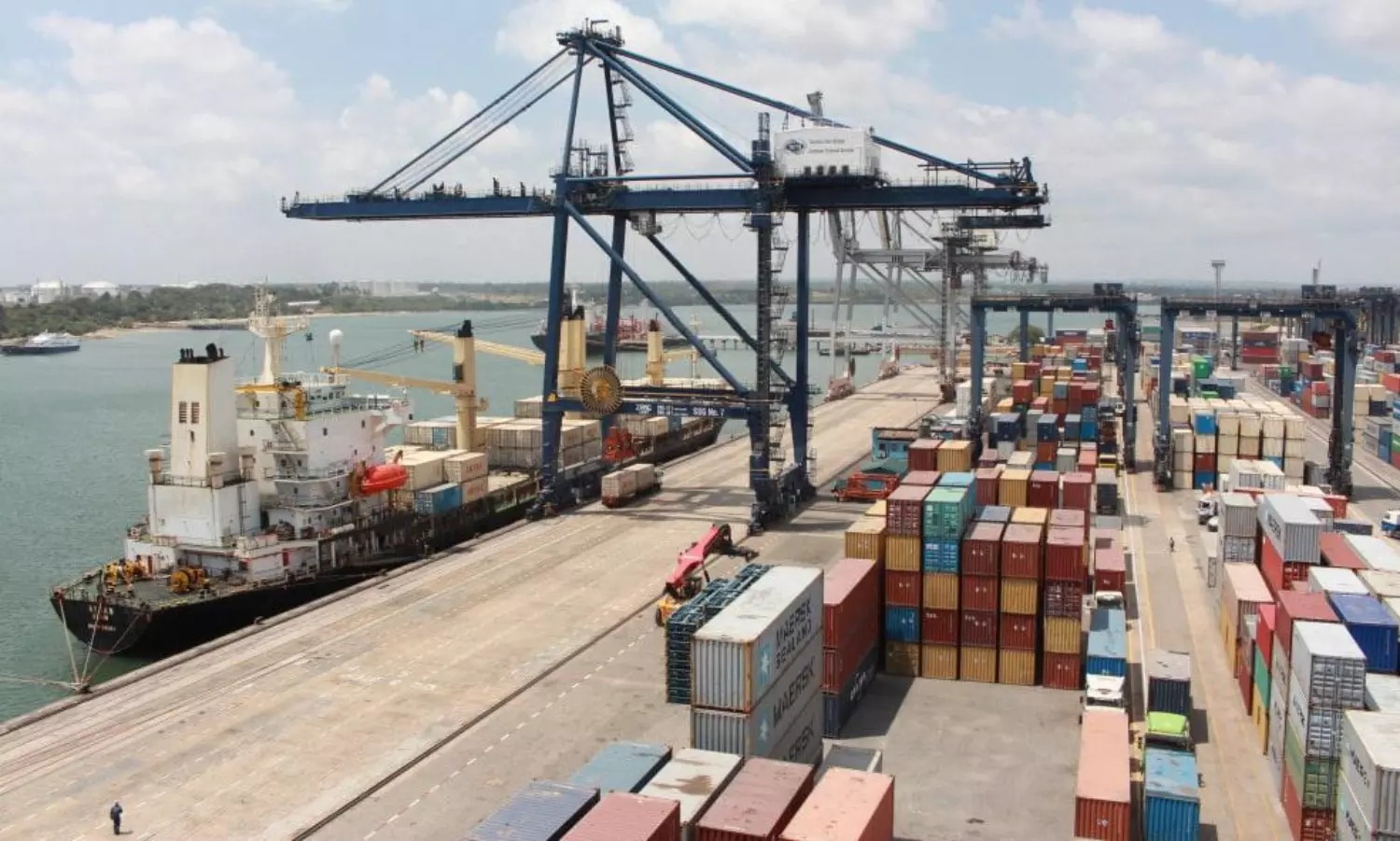Prime
Tanzania in the crossfire as DR Congo conflict rages

A bird’s-eye view of a section of Dar es Salaam Port. PHOTO | FILE
What you need to know:
- The ongoing conflict in the Democratic Republic of Congo is not only taking a toll on human lives, but is also severely affecting Tanzania’s economy, particularly its vital transport and trade sectors
Dar es Salaam. The ongoing conflict in the Democratic Republic of Congo (DRC) is not only taking a toll on human lives, but is also severely affecting Tanzania’s economy, particularly its vital transport and trade sectors.
After days of speculation, the Tanzania People’s Defence Forces (TPDF) on Sunday confirmed that two of its soldiers were killed and four others wounded while on a peacekeeping mission in eastern DRC.
The TPDF acting head of information and public relations, Colonel Gaudentius Ilonda, said in a statement that the casualties resulted from recent attacks by M23 rebels.
“Following consecutive attacks in the Sake and Goma areas on January 24 and 28, 2025, TPDF lost two of its soldiers while four others were wounded. The wounded personnel are currently receiving treatment in Goma,” he said.
Col Ilonda added that preparations were underway to repatriate the bodies of the fallen soldiers while ensuring that those wounded receive necessary medical care. The process is being facilitated in coordination with the Southern African Development Community (SADC) Secretariat.
Troops remain strong and committed
Col Ilonda assured that the rest of TPDF troops deployed in the DRC are safe and continue with their peacekeeping duties as directed by SADC.
The TPDF contingent is operating under the SADC Mission in the DRC (SAMDRC), which was deployed to help stabilise the eastern part of the country, where M23 rebels have been engaged in ongoing clashes with the Congolese armed forces.
The Southern African Development Community (Sadc) Mission in the Democratic Republic of Congo (SAMIDRC) recently reported casualties, with Tanzania, South Africa, Malawi and the DRC itself losing soldiers in the ongoing unrest.
According to a communiqué from the Extraordinary Summit of Sadc Heads of State, dated January 31, 2025, the leaders expressed their “deepest condolences” for the fallen soldiers.
“Summit expressed its deepest condolences to the Democratic Republic Congo, the Republics of Malawi and South Africa and, the United Republic of Tanzania for the deceased soldiers who lost their lives during the recent attacks in Sake, eastern DRC, whilst serving under the SAMIDRC and wished those injured a speedy recovery,” reads a statement in the communiqué.
In addition to the tragic loss of life, experts warn that the conflict’s impact on Tanzania’s economy is already being felt. Available data shows that the DRC is Tanzania’s largest foreign client for Dar es Salaam Port, which serves as a critical transit hub for goods bound for central and southern Africa.
In the 2023/24 financial year, the port handled 9.187 million tonnes of goods in transit, with the DRC accounting for 45.5 percent of this volume.
Zambia ranked second, with 2.25 million tonnes, accounting for 24.47 percent of the goods in transit that passed through Dar es Salaam Port. Rwanda followed in third place, contributing 1.672 million tonnes, which represents 18.2 percent of the port’s transit cargo. Malawi was fourth, with 594,281 tonnes, making up around 6.5 percent of the total goods in transit, while Burundi came fifth with 349,591 tonnes, contributing 3.8 percent to the port’s transit volume in 2023/24.
Uganda, by comparison, imported only 60,682 tonnes, representing just 0.66 percent of the transit goods passing through Dar es Salaam Port. All other countries collectively moved 80,669 tonnes of goods through the port.
In total, the port handled 23.7 million tonnes of goods in 2023/24, with 14.485 million tonnes destined for the local market.
Though the DRC as a key partner, the conflict has disrupted these trade routes, leaving nearly 100 Tanzanian trucks stranded and unable to complete their deliveries. The Tanzania Truck Owners Association (Tatoa) has raised concerns about the financial strain this situation is placing on their businesses. The DRC has long been a vital market for Tanzanian freight operators, accounting for around 70 percent of their business, according to Tatoa chair Rahim Dossa.
He told The Citizen’s stablemate Mwananchi on Saturday that with the severity of the situation, trucks heading to eastern Congo are currently parked in Rwanda, unable to continue their journey. “We are heavily impacted by the ongoing conflict. Lorries are stranded, with goods left in precarious situations,” Mr Dossa said.
Tanzania’s trucking industry is not the only sector feeling the pinch. Dar es Salaam’s bustling Kariakoo market, a major trade hub for DRC nationals, has seen a drop in business, according to Tanzania Business Community chair Khamis Livembe.
He told Mwananchi that Dar es Salaam is the hub of trade with the DRC, with many goods being purchased from local shops and warehouses. However, with the instability in the DRC, traders have noted a decrease in business activity.
Meanwhile, experts have called for urgent measures to address the situation.
An expert in business and economics, Dr Donath Olomi, suggested that Tanzania needs accurate, up-to-date information on the conflict and its potential economic risks.
“As a nation, we must work towards a resolution, or at the very least, find ways to minimise the economic fallout,” he said.
Mr Oscar Mkude, another economist, recommended exploring alternative trade routes to the DRC, particularly through Zambia, to mitigate the impact. He also warned of the potential for criminals to exploit the turmoil for looting, further complicating the situation for freight operators.
The new development could pose a threat to recent achievements at Dar es Salaam Port, which has been reporting an increase in cargo handling capacity and efficiency.
Chief government spokesperson Gerson Msigwa said recently that Dar es Salaam Port handled 14.4 million tonnes of cargo from May to November 2024, a 5.6 percent increase compared to the corresponding period in 2023.





